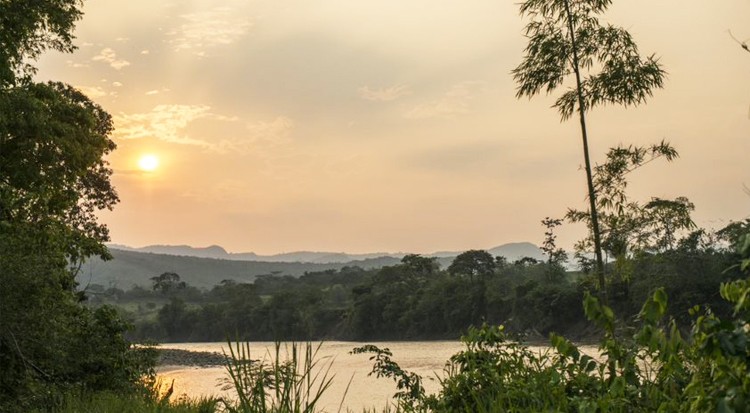Colombia has recently launched a large-scale program with the World Bank’s BioCarbon Fund Initiative for Sustainable Forest Landscapes (ISFL) to reduce greenhouse gas emissions generated by agriculture, deforestation and other land uses. The initiative aims to incentivize farmers and businesses in the region to sustainably increase production and to realize the potential of the Orinoquia region to become a food basket for the country and the world.
Spanning 25 million hectares, the Orinoquia region is considered one of the world’s last agricultural frontiers. Its diverse ecosystems include tropical forests, savannahs, and wetlands, along with a wealth of flora and fauna.
"We’ve chosen to focus on the Orinoquía region because of its potential for sustainable growth through low-carbon development that can contribute to the reduction of greenhouse gases and deforestation,” said Colombia’s Minister of Environment and Sustainable Development, Ricardo Lozano. He, along with several other ministers and Colombia’s President, Iván Duque Márquez, attended the official launch of the ISFL program this week at the Tropical Forest Alliance General Assembly in Bogotá.
The $20 million ISFL grant, covering program design and implementation, will ultimately help unlock results-based payments that reward communities and stakeholders for reducing carbon emissions through the adoption of sustainable land use practices.
“Colombia’s program has the potential of being a game-changer for the Orinoquía region. In addition to building stronger connections with the private sector to promote sustainable productive agriculture, the region has opportunities to unlock a nature-based economy based on its rich biodiversity and ecosystem services. This is great news for the protection of Colombia’s globally-significant forests and the mitigation of climate change,” says Roy Parizat, Fund Manager of the ISFL.
“Leveraging financing opportunities to crowd-in investment will support new economic opportunities and legal employment in rural areas, while preserving the enormous biodiversity, carbon and ecosystem value of the region," adds Parizat.
Colombia’s ISFL program is being led by the country’s Ministry of Agriculture and Rural Development, in close coordination with the Ministry of Environment and Sustainable Development, the National Planning Department, and Colombia’s Institute of Hydrology, Meteorology and Environmental Studies. The program will be implemented in the departments of Meta, Vichada, Casanare and Arauca in Orinoquía, and will seek to integrate sustainable production systems in strategic conservation zones.
Four other countries are participating in the ISFL program: Ethiopia, Mexico and Zambia have already launched their ISFL programs; and Indonesia is expected to follow suit in the coming year.
The ISFL is a multilateral fund, supported by donor governments – Germany’s Bundesministerium für Umwelt, Naturschutz und nukleare Sicherheit (BMU), Norway International Climate and Forest Initiative (NICFI), Swiss Agency for Development and Cooperation (SDC), United Kingdom’s Department for Business, Energy and Industrial Strategy (BEIS) and Department for Environment, Food and Rural Affairs (DEFRA), and the United States State Department (DOS) – and managed by the World Bank.

